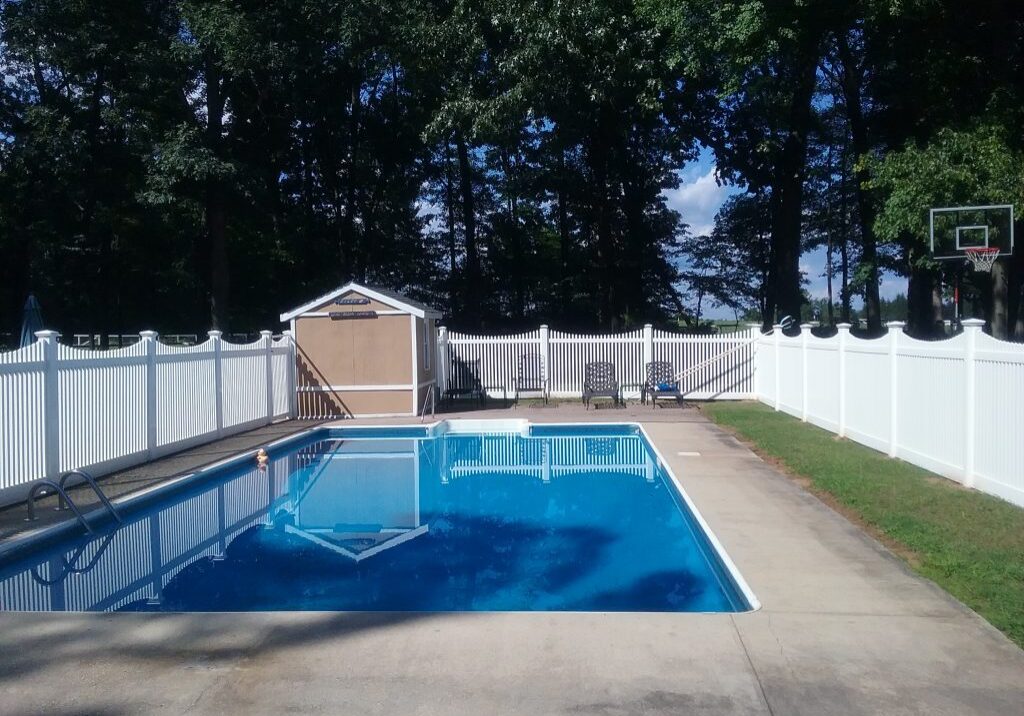Featured

Selecting the ideal type of fence for your residential or commercial property is a considerable decision that can affect both the aesthetic appeals and performance of your room. Whether you're trying to find privacy, safety and security, or merely an attractive feature, there are numerous elements to take into consideration when picking the perfect fence. Below are some essential considerations to aid direct your decision-making procedure.
- Determine the Purpose of the Fencing. The initial step in picking the ideal type of fencing is to clarify its function. Different fences offer various features, and recognizing your specific demands will help tighten down your options. Think about the complying with:
Privacy: If you're looking for personal privacy, a solid and tall fence such as wood or vinyl will certainly prevent spying eyes from seeing right into your backyard. Security: For safety and security purposes, a solid, tall fencing constructed from light weight aluminum or steel can hinder burglars and offer satisfaction. Visual Appeal: An attractive fencing made from wrought iron, light weight aluminum, or picket-style wood can include beauty and curb interest your residential or commercial property. Pet or Animal Control: If you need to consist of pet dogs or animals, a tough fence like chain web link or wood might be required to stop them from running away. 2. Think about the Product. Once you have actually developed the fencing's key purpose, it's time to choose the material. Each kind of material includes its own collection of advantages and challenges. Here are some typical materials to think about:
Timber: Timber fences are versatile and adjustable, supplying privacy and a traditional appearance. They're optimal for country residential properties or standard homes yet need regular upkeep to stop parasite, warping, or rot problem. Vinyl: Vinyl fences are low-maintenance, long lasting, and offered in a range of designs. They won't fracture, warp, or fade, making them a terrific choice for those that want a durable, easy fence. However, vinyl can be extra pricey in advance than wood. Light weight aluminum: Aluminum fences supply a streamlined, modern appearance and are durable, rust-resistant, and need minimal upkeep. Nevertheless, they commonly don't offer as much personal privacy as wood or plastic, as the slats are usually spaced apart. Chain Link: Wire mesh fence are frequently used for protection or to consist of pet dogs. They are budget friendly and long lasting, but they don't offer much privacy or aesthetic allure unless you include slats or privacy screens. 3. Consider the Environment and Maintenance Requirements. Your region's climate can substantially affect the life-span and upkeep requirements of your fencing. Products like timber may require extra care to stop rot or mold and mildew growth if you live in a location with high moisture or frequent rain. On the various other hand, plastic and light weight aluminum fences are resistant to the components and need a lot less upkeep.
Additionally, consider the quantity of time and initiative you agree to commit to fencing maintenance. Wood fences need regular discoloration or painting to keep their appearance, while vinyl and aluminum need far less maintenance.
- Assume Concerning Durability and Life-span. Think about how much time you want your fence to last. If you're looking for a fencing that will last for decades with little upkeep, plastic and aluminum are excellent selections. While timber fences can last 10-20 years with appropriate care, they might not stand up to the examination of time along with various other materials.
Likewise, consider your budget plan. Products like timber and chain link often tend to be even more cost effective upfront, while plastic and aluminum tend ahead with a greater preliminary expense however supply long-lasting longevity.
- Match the Fencing to Your Building Style. The kind of fencing you select must match the total feel and look of your residential property. An appropriate fence can boost your home's curb appeal, while an inadequately selected fencing can interfere with it. :
Typical Houses: A timeless wood picket fence or a functioned iron fence functions well with older, extra conventional homes. Modern Residences: For a modern look, sleek products like aluminum or plastic can match modern design. Rural or Ranch Residences: A wooden or cable fencing might be excellent for country buildings or farms, where practicality is equally as important as aesthetic appeals. 6. Check Regional Laws and HOA Standards. Prior to making your final decision, examine your regional zoning policies and any type of HOA (Homeowners Association) standards to make sure that your desired fencing abide by elevation limitations, product needs, and various other regional regulations. Some locations have certain regulations concerning the appearance of fences, particularly in property areas.

Conclusion. Picking the best fence for your home requires careful consideration of your requirements, spending plan, and the style of your home. Whether you're focusing on personal privacy, protection, or visual appeal, there's a fence material and design that will certainly suit your needs. By considering the variables outlined over, you can make an informed choice and pick a fencing that will boost the functionality and charm of your residential or commercial property for several years ahead.
Latest Posts
Check Out Outstanding Vehicle Maintenance Care from Montclare Auto Repair – Drive with Confidence
Published en
1 min read
Check Out Montclare Auto Repair’s Most Popular Services and Why Drivers Rely On Them
Published en
1 min read
Find Brake Repair & More: Complete Repair Options from Montclare Auto Repair
Published en
1 min read
More
Latest Posts
Check Out Outstanding Vehicle Maintenance Care from Montclare Auto Repair – Drive with Confidence
Published May 30, 25
1 min read
Check Out Montclare Auto Repair’s Most Popular Services and Why Drivers Rely On Them
Published May 25, 25
1 min read
Find Brake Repair & More: Complete Repair Options from Montclare Auto Repair
Published May 23, 25
1 min read